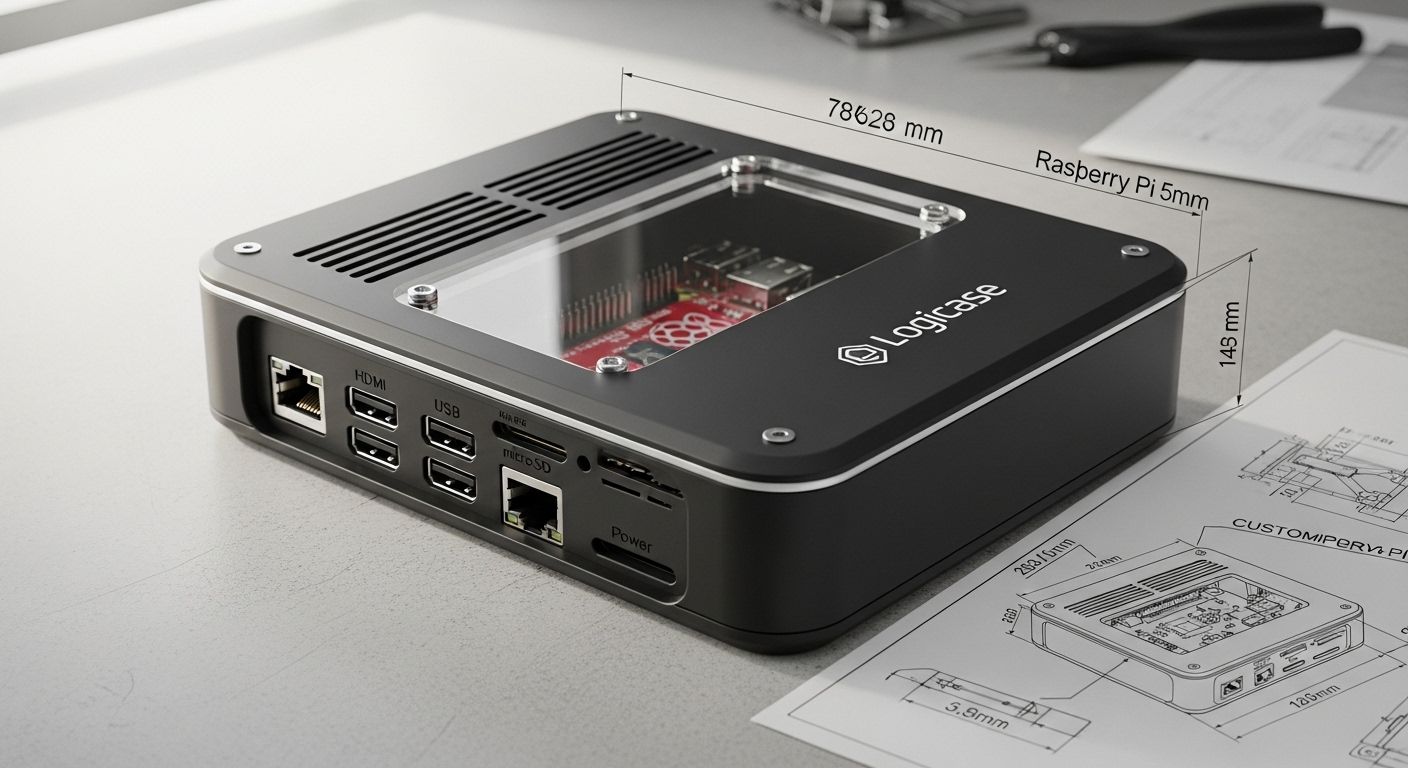
Understanding No Molds Manufacturing
In the world of custom Raspberry Pi cases, the traditional manufacturing process often involves the creation of molds. However, a shift towards no molds production is gaining traction, because of cost, lead time and modifications options.. This innovative approach allows for more flexibility in design and reduces the upfront costs associated with mold creation. By eliminating the need for molds, Toolless can quickly adapt to design changes, making it ideal for custom projects and small production runs.
The absence of molds doesn’t mean compromising on quality. Instead, it opens avenues for using advanced techniques such as 3D printing and CNC machining. These methods provide precision and consistency, ensuring that each Raspberry Pi case meets the desired specifications. Additionally, without the constraints of molds, Toolless can experiment with different materials, offering a wider range of options for the final product.
Design Specifications and Customization
When it comes to designing a Raspberry Pi case without molds, customization is the key advantage. You have the freedom to tailor the design to meet specific needs, whether it’s for aesthetic appeal or functional requirements. This means you can include unique features such as custom ports, ventilation patterns, and even branding elements. Toolless has the ability to meet with any requirements.
Design specifications are crucial in no molds manufacturing. Precise measurements and detailed design files are necessary to ensure that the final product fits the Raspberry Pi perfectly. Collaboration with our designers who understand the intricacies of the Raspberry Pi’s dimensions and requirements can significantly enhance the quality of the custom case. By focusing on these specifications, you can create a case with us, that not only protects the device but also enhances its usability and appearance.
Advanced Production Techniques
Producing custom Raspberry Pi cases without molds involves utilizing advanced production techniques. Two of the most popular methods are 3D printing and CNC machining. Each technique offers unique benefits that can be leveraged depending on the project’s requirements.
- 3D Printing: This technique allows for rapid prototyping and small production. It is highly versatile, enabling complex designs that would be challenging to achieve with traditional methods. However, high production volumes requires other technologies like Toolless, that can absorb way more production than regular 3D printing.
- CNC Machining: Known for its precision, CNC machining is ideal for producing cases with intricate details and high durability. It is particularly effective when working with materials like aluminum or acrylic. Toolless owns 7 CNC machines with 2 different controllers, allowing mass production and versatility of designs.
- Material Experimentation: Without the constraints of molds, experimenting with different materials like biodegradable plastics or composites becomes feasible. Toolless recycle 70% of its left-off plastics.
These Toolless techniques not only ensure high-quality production but also allow for scalability, accommodating both small and large production runs efficiently.
Quality Control Measures
Ensuring the quality of custom Raspberry Pi cases is paramount, especially when using no molds production techniques. Implementing robust quality control measures is crucial to maintain consistency and reliability in the final product. Toolless has been ISO certified for more than 10 years, assuring consistency and quality.
First, setting up a detailed inspection process is essential. This involves checking each case for dimensional accuracy, material integrity, and surface finish. Using tools like calipers and micrometers can help in verifying these aspects. Additionally, Toolless can conduct stress tests and ensure that the case can withstand typical usage scenarios without compromising the Raspberry Pi housed within.
Another critical measure is continuous feedback and iteration. Engaging with customers to gather feedback on the cases can provide valuable insights into potential improvements. This iterative approach not only enhances the product’s quality but also fosters customer satisfaction and loyalty.
Common Questions About No Molds Manufacturing
As you explore no molds manufacturing for Raspberry Pi cases, several questions may arise. Here are some common inquiries and their answers:
- Why choose no molds manufacturing? It offers flexibility in design, reduces initial costs, and allows for rapid prototyping and production.
- What materials can be used? A variety of materials, including plastics, metals, and composites, can be used, depending on the desired properties of the case.
- Is no molds production suitable for large-scale manufacturing? Yes, with techniques like CNC machining and 3D printing, scaling up production is feasible without sacrificing quality.
- How does quality control differ in no molds manufacturing? It involves detailed inspections and stress tests to ensure each case meets the required standards.
Understanding these aspects can help you make informed decisions when opting for no molds manufacturing with Toolless for your Raspberry Pi cases.
Real-World Applications and Scenarios
No molds manufacturing is particularly beneficial in scenarios requiring rapid customization and iteration. For instance, educational institutions often require Raspberry Pi cases tailored to specific projects or courses. With our expertise of no molds production, we can quickly adapt designs to suit different educational modules or experiments.
Similarly, startups and small businesses can benefit from our approach by designing unique cases that align with their brand identity. Whether it’s adding a logo or creating a case that complements the aesthetic of other products, no molds manufacturing provides the flexibility to achieve these goals without the high costs associated with traditional mold-based methods.
Moreover, hobbyists and DIY enthusiasts find no molds manufacturing appealing due to its accessibility. With 3D printing becoming more mainstream, individuals can design and produce custom Raspberry Pi cases from the comfort of their homes, experimenting with various designs and functionalities. Toolless can assist them with next step of production and launch their product in a safe way.
